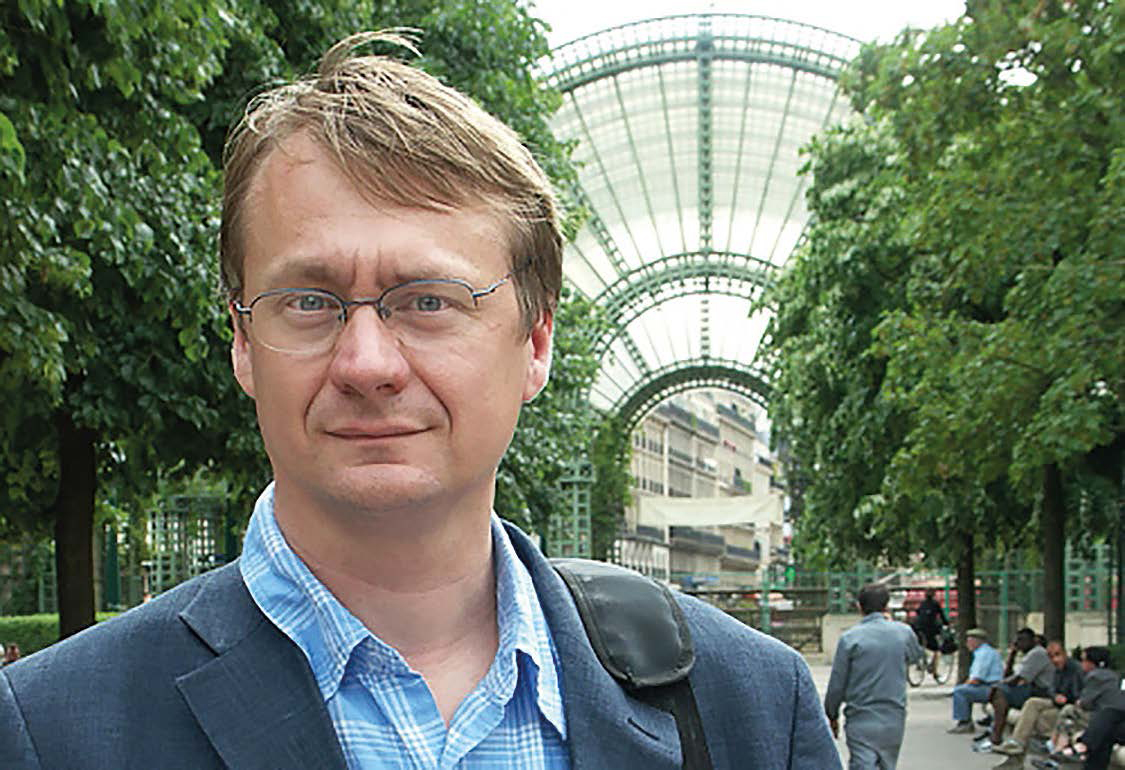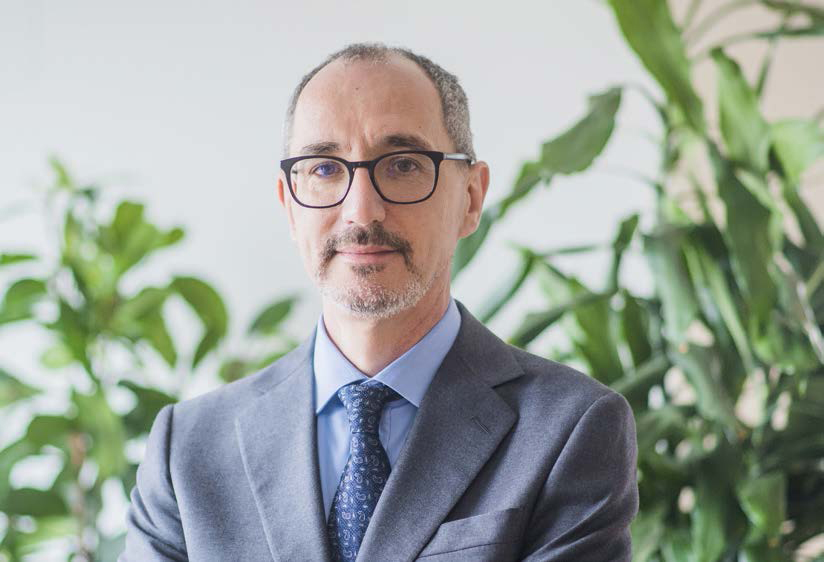Environmental Communication Should be More Emotive

Interview with Thierry Libaert, member of the EU Social and Economic Committee
by I. N. B.
As an expert in environmental communication, what do you think of the level of communication in Europe in terms of sustainable development and circular economy? What do you think is the best strategy to adopt?
“I believe that the global communication strategies of the EU and many other national institutions on themes of social responsibility, sustainability and global warming suffer from being too ‘top-down,’ perhaps a bit unilateral and often moralising. If we look at the most positive ways in which people receive messages, there are several things that don’t add up. Firstly, the sender circulates a message in a unilateral manner, with no interaction and often using a single instrument, like advertising or information pamphlets. I’ll give you an example: a theme I have worked on has been how to get people to separate their waste. We have verified that results are obtained by combining informative tools and the human element, which means interaction with experts who, in person, explain good behaviours. The 90% of communication that is limited to distributing informative materials doesn’t work very well. Secondly, speaking of the environment, when we ask European citizens how they consider themselves in terms of environmental behaviour, we discover that 95% of them believe themselves to be ‘good eco-citizens.’ Hence, when messages are sent out to raise awareness about environmental issues, the same thing happens that occurs with road safety information: most people believe themselves to be good drivers, therefore the message is ignored because people believe it is not aimed at them. The system, therefore, should include a higher level of personalisation in its messages. Thirdly, communication regarding certain themes, like climate change, is very technical: ‘compliance with accords on 1,5 to 2 °C,’ ‘so many tonnes of carbon,’ etc. I think that communication should be much easier to visualise: no one has ever seen a tonne of carbon, so the message is hard to understand. Furthermore, there should be more of a focus on emotional appeals, and on what climate change will lead to if we keep going the way we’re headed.”
Does more effective communication translate to better buying habits on the part of the consumers?
“The European Social and Economic Committee, of which I am a member, launched a large research project in 2016, involving 3,000 people in Spain, Czechia, France, Belgium, Luxembourg and the Netherlands in a participative experiment, where people were put in the position of having to purchase certain products. We built a fake e-commerce site and we asked them to use it to make some purchases, and we tried to write a product’s estimated lifespan in the description. We realised that consumers did look at this information – negating what many people say about there being too much information on labels already – and, furthermore, that they were able to choose in a thoughtful manner, not just based on lower prices but often choosing to pay more for a product if it would last for a longer period of time. It’s a virtuous cycle, where consumers benefit from longer lasting products, companies have an interest in manufacturing objects that have a higher cost and the consequences for the environment are less use of natural resources, and less waste.”
Do you believe that companies are really moving things up a gear?
“I think they are, and that they understand that it’s a profitable model, even in terms of reputation. From tyre manufacturers working hard to extend their products’ life cycle, to large manufacturers of electrical appliances who ensure ten-year reparability for their products, it’s a case of standing out in the field to attract consumers and help the environment, and not in terms of ‘greenwashing.’ Furthermore, the service economy – which is part of the circular paradigm – has a real interest in making its products last as long as possible.”
And all of this also has a social impact.
“Exactly. From the perspective of creating new jobs in the various phases of product manufacturing and repair, a study commissioned within the framework of the European Resolution of June 2017 has demonstrated that, if product durability and reparability parameters are taken into consideration, approximately 45,000 jobs would be created. Additionally, planned obsolescence has a greater impact on lower-income portions of the population: those who have less money to spend buy less expensive products that don’t last as long. This means purchasing frequency increases, creating more debt. Increasing the lifespan of products and their reparability also leads to higher social equality.”
Circular Economy Stakeholder Conference, https://circulareconomy.europa.eu/platform/en
We Need a Better Culture of Circularity

Interview with Paolo Falcioni, Director General of APPLiA
by I. N. B.
APPLiA is the organisation that represents the European household appliance industry, a sector with a strong belief in re-adapting products and manufacturing processes to bring about full circularity for consumer products. Among the main members of the organisation are Arçelik, Whirlpool, Daikin, Panasonic, LG, Samsung, De Longhi, Electrolux, Miele, DHS, almost the totality of electrical appliance companies operating in Europe today.
How is the household appliance sector positioned relative to the EU’s circular economy regulations?
“I believe that the industry is even more advanced than the legislation. Today appliances are completely circular, because when they are reintroduced to the recycling market all of their components become secondary raw materials. Product management, if waste disposal is performed correctly, can therefore lead to complete circularity. What is missing is the ability to track all the appliances’ movements: we don’t know where approximately 2/3 of appliances end up, in terms of electrical and electronic waste. This is why a single European market for waste is highly desirable.”
What is the contribution of your circular transition partners? How are they responding to the spectre of planned obsolescence?
“Our partner companies believe in the circular paradigm and are extending the life cycle of appliances by committing to research and development of new products. Another important figure is the emphasis on reparability: on a global scale, our partners employ 32,000 repair people in the repair industry. In 2016, according to our report, of a total 150 million pieces manufactured by our partners, the percentage of repair requests that were fulfilled was 81%, thanks to design strategies that provide for the entire life cycle. The total revenue of the repair service industry in Europe today is approximately 2 billion euro, so companies have a real incentive even just on the economic level, thanks to the rapid development of the post-sale market. We are also in favour of repair even when it’s not managed directly by the companies – I’m thinking of ‘repair cafés’ – as long as the safety of the final consumer is guaranteed.”
APPLiA’s press release talks about #circularculture: what does this mean?
“In order to enhance consumer awareness and push legislators to work towards better recovery standards, we coined the expression ‘circular culture’ and produced several videos demonstrating how everyone can contribute to increasing circularity in the economy and in consumption habits, because the industry alone does not have a universal reach. For example, in Europe today 20% of small domestic appliances are thrown out as general waste, and thus do not reach waste recovery operators that can restore value to the components. This is why we believe it is necessary to make everyone – companies, legislators and individual citizens – more aware and responsible, so that economic development can be more sustainable. Additionally, a more conscious use of appliances allows us to minimise waste: think of the fact that dishwashers can use 90% less water than washing dishes by hand. We have the moral duty to remember that in Europe we are privileged, and therefore should make more of an effort to understand that resources like water are precious, and liable to scarcity, whereas elsewhere the risks are more immediate.”
Your European partners also operate outside of the confines of Europe: does their circular approach also extend to where legislation is less binding?
“I recently attended the Science-Policy-Business Forum held by the United Nations in Nairobi, and I was able to demonstrate how in Europe we are shifting towards a circular industry. It is clear that our starting point is different to that of many other countries, whether they are larger or smaller consumers, but overall our experience places itself as a basis to rethink our attitudes to consumption and to our impact on the planet. The industry I represent has the intention of offering the most innovative and low-impact products anywhere in the world.”
APPLiA, www.appliaitalia.it


